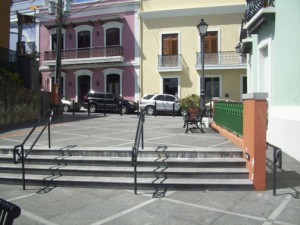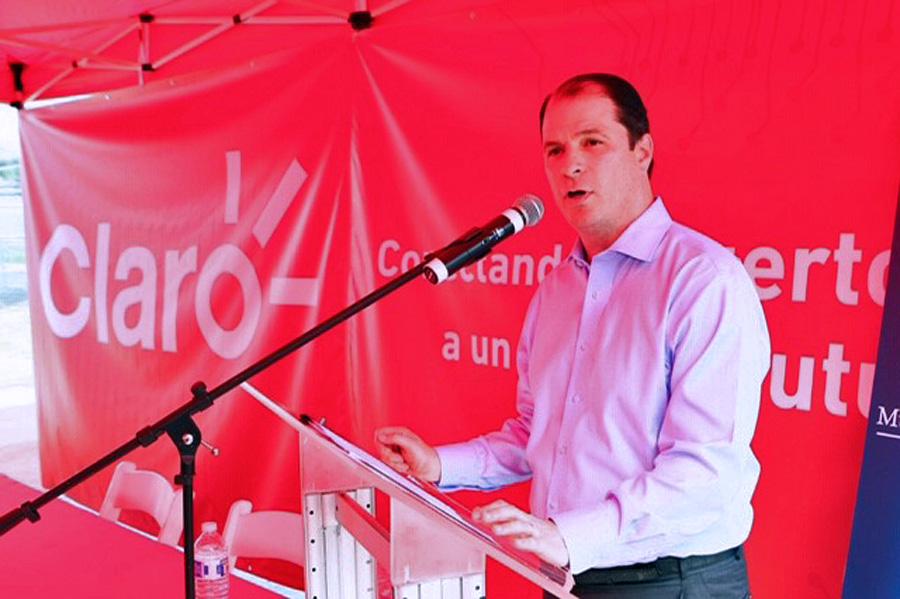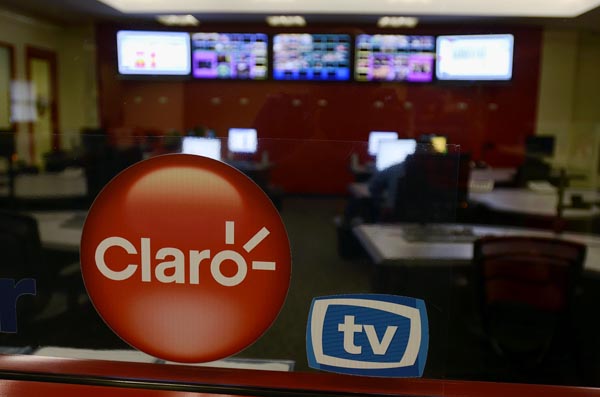Liberty-OneLink union to create ‘formidable competitor’

The corporate union between the island’s leading cable operator OneLink Communications and the second largest, Liberty Cablevision of Puerto Rico, is expected to create a formidable competitor against satellite paid television providers and, in coming months, Claro de Puerto Rico.
In an interview with News is my Business, Naji Khoury, Liberty Cablevision of Puerto Rico’s managing director, said Liberty’s network — which already serves 37 towns along the island’s northern, central and eastern regions — will be extended to the San Juan metropolitan area starting in 2013.
Over the past decade, Liberty has pumped hefty sums into building out its state-of-the-art digital network to provide cable, telephony and high-speed Internet services, is expected to invest a yet unspecified amount in OneLink’s infrastructure to launch next-generation services that San Juan metropolitan area customers have been long anticipating.
“Yes, we’re going to invest whatever it takes to bring OneLink’s system up to par and to continue to deploy fiber optic infrastructure and implement our DOCSIS 3.0 network to deliver high-definition services to that customer base,” Khoury said. “We won’t know how much we’ll need to invest until we get in there later this year.”
Liberty’s parent company, Liberty Global, confirmed Tuesday it had reached an agreement with OneLink’s owners, New York-based MidOcean Partners and Crestview Partners to acquire the assets of the San Juan cable company for $585 million. News is my Business reported on the transaction on Monday.
Merging footprints
Liberty provides service in 37 municipalities throughout the northern, central and eastern regions of the island. Meanwhile, OneLink is based in San Juan and covers eight main cities: San Juan, Guaynabo, Cataño, Bayamon, Carolina, Trujillo Alto, Toa Baja and Toa Alta. Combined, the carriers will have 480,000 customers base and the possibility of reaching 220,000 additional homes within the extended footprint.

While Khoury said Liberty would “definitely consider” trying to extend service into Old San Juan, he also admitted they would have to “make sure hurdles aren’t set too high for us to do so.”
One sector OneLink has never served is the Old San Juan neighborhood, which has had to rely on satellite companies to get their paid television signals. OneLink has been basically shut out of the old city by laws designed to protect and preserve the history of its centuries-old streets and structures.
While Khoury said Liberty would “definitely consider” trying to extend service into Old San Juan, he also admitted they would have to “make sure hurdles aren’t set too high for us to do so.”
“We’ll look into it, but it’s too early to speculate today. However, Liberty believes in cable infrastructure, not microwave, so we would have to be allowed to lay down cable,” he said.
The transaction is expected to close in the fourth quarter of 2012, after receiving the necessary approvals from local and stateside regulatory agencies. That said, Khoury confirmed Liberty will be submitting its application for approval to the Puerto Rico Telecommunications Regulatory Board “in a matter of days.”
“The attorneys are already working on the application. It should be filed in a week or two,” Khoury said, rejecting the probability that the merged companies could be ultimately construed as a monopoly.
“You can argue the point that this will actually improve competition because we’re going to do that well,” he said.
Cable industry transforming
The transaction comes at a time when Puerto Rico’s paid television market is undergoing significant changes, particularly with the impending arrival of programming via broadband Internet through Claro de Puerto Rico, which got its cable television franchise license in February.
That approval process took nearly three years to complete, as Claro’s petition drew staunch opposition from the cable carriers, particularly OneLink, which challenged the application in every judicial forum at its reach.
An industry source who spoke to this media outlet off the record said when the TRB granted Claro TV its franchise license earlier this year, OneLink was “pushed against the wall to make a decision, because it didn’t have the financial ability to compete.”
Attempts to reach local OneLink executives were unsuccessful Tuesday.
By using IPTV technology to offer paid television service, Claro will likely offer dozens of high-definition channels and other premium packages.
But Khoury said Liberty is not concerned about the competitive landscape ahead.
“We believe and we’re convinced that we have a superior network vis-a-vis our competitors and nothing beats cable in terms of speed, delivery, and the offering of high-definition channels,” Khoury said. “We’re way ahead of where our competitors will be.”
“What we’re doing here by combining two entities is getting scale to compete against companies like Claro, Dish and DirecTV,” he said. “Liberty is not afraid of competition, we will compete based on product, pricing, and customer service. We’re good at it and we’re going to get better at it. We’re ready and not too worried.”
Liberty de Puerto Rico, as the new unified company will be known, will have a combined payroll of about 800 people, half of which are current OneLink employees. Khoury said it is likely that all of them will be asked to “join the Liberty family.”
“They have done quite a job over past couple of years since taking over the assets from Adelphia, and we give them credit for that,” the telecom executive said.










